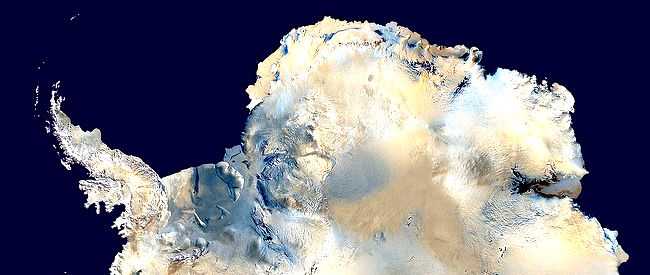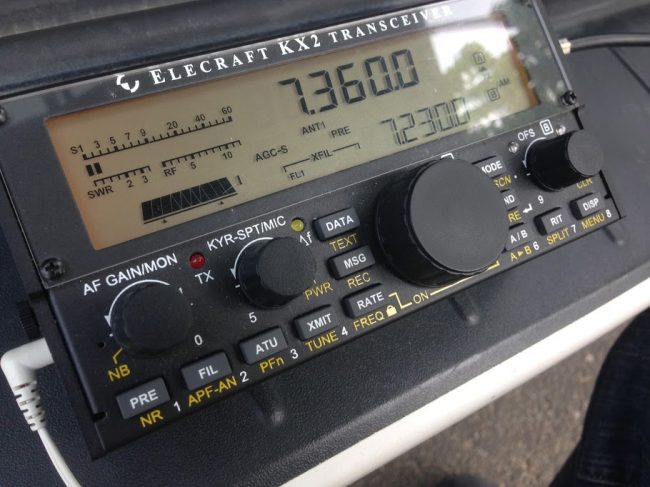Every year, the BBC broadcasts a special program to the scientists and support staff in the British Antarctic Survey Team. The BBC plays music requests and sends special messages to the small team of 40+ located at various Antarctic research stations. Each year, the thirty minute show is guaranteed to be quirky, nostalgic, and certainly a DX-worthy catch!
After successful listener events from years past, I’m calling on all SWLing Post readers and shortwave radio listeners to make a short recording (say, 30-60 seconds) of the BBC Antarctic Midwinter Broadcast today and share it here at the Post (frequencies and time below).
The recording can be audio-only, or even a video taken from any recording device or smart phone. It would be helpful to have a description and/or photo of your listening environment and location, if possible.
If you submit your recording to me, I will post it here on the SWLing Post–and insure that the British Antarctic Survey receives the post, too. The recordings will be arranged by geographic location.
Frequencies
Please note that the broadcast begins at 2130 UTC on June 21, 2017. The following frequencies are based on the test transmissions last week and info published by Martin Goulding and Mauno Ritola (thank you, guys!):
From ASCENSION
7360 kHz250 kW / 207 deg to Antarctica
From DHABAYYA
6035 kHz250 kW / 203 deg to Antarctica
From WOOFFERTON
5985 kHz300 kW / 184 deg to Antarctica
I’m sure there will be live reports in the SWLing Post chat room during the broadcast. Please sign in and share your report as well!
I hope I’ll be able to receive the broadcast this year–I’m traveling again in Québec, but will have my trusty Sony ICF-SW100 and Elecraft KX2 in tow.
I’ll plan to set up at the same listening spot I did last year.
The Midwinter broadcast is one of my favorite programs of the year. I suppose, in part, this is because it happens on June 21–the Summer/Winter solstice–which also happens to be my birthday! Woo hoo!



Received via Tecsun PL-380 and the bundled long wire antenna draped out of the window of a ground floor flat. Fair to Good reception of 5985khz from Woofferton and almost as good for 7360khz from Ascension. Nothing at all from 6035khz in Dhabbaya.
Very enjoyable programming – heartwarming messages, funny interludes, and nice clips from Palin, Attenborough, Bill Bailey and… John Carpenter!
Have uploaded my recordings, such as they are: https://drive.google.com/drive/folders/0BxF9Lh39bH1lVTgwM2VEN2hBRGs (The first two recordings are on my phone from the radio’s speaker, the last three are through a headphone into the phone’s mic – so both are very poor quality, apologies.)
Thanks for the heads-up on this, Thomas, and thanks for everyone’s reports.
At Mount Evelyn (south-eastern Australia), 5985 was very good, 6035 started fair but improved towards the end, and 7360 was barely audible and unusable. Actually, I thought 7360 ASC would have been better than it was – it’s almost an all darkness path from ASC to Mt Evelyn. The short path takes it south, skimming the Antarctic coastline, along the southern Antarctic Ocean and up near Tasmania. But not to be – perhaps there was some absorption near the polar region.
……Oh, and the neighbour’s TV was coming in very strongly as well this morning…..until they went off to work at 2150! 🙁
Here is my recording, enjoy:
https://ia601501.us.archive.org/30/items/BBCMidwintersDayBroadcast/BBCWorldService-Antarctic-Midwinters-Day-Broadcast-5985kHz-2130-2200-21-06-2017.mp3
Listening on a Tivdio V-115 in St Neots. Stood in the dark with bats circling my head on a warm night. Loved the John Carpenter moment. Audio attached to this tweet.. https://twitter.com/Documentally/status/877650637395251200
I received the programme, for 30 minutes, on 5985 KHz and 7360 KHz.
I could not receive the 6035 KHz transmission.
Strong signal, no interference, slight fading.
I used my old Yaesu FRG-7 with an outdoor antenna and the Tecsun pl-660 with its own telescopic.
The 5985 KHz frequency brought the programme two seconds earlier.
I listened messages to familiar persons.
I did not manage to record.
Hi From Wayne in Bunbury Western Australia.
Using a Funcube Pro+ Dongle and a 20M Longwire at 2145 to 2200utc
7360 kHz Just Audible
6035 kHz Very Strong and Clear
5985 kHz Also Very Strong and Clear.
Looking good so far….5985kHz WOF in the UK.
Recording on SDRUno/RSP2 using an indoor Homebrew Mag Loop.
ASC is ‘OK’ DHA not so but WOF closer and prop better, a no-brainer for me really.
Boaty McBoatface got a mention too, aka RRS Sir David Attenborough.
Will upload to archive.org later.
More from Gil ….
“Just got in touch with the science tech at McMurdo … I’ve now spread the word as far as I can.”
I sent this over to my mate, Gil Jeffer whom is actively involved in activities down at the Pole. He sent me this by return …
“I’ve forwarded your note to all the NJIT hams and to Jim Norton of UACNJ,
I also cut out the important bits and sent that to pole over the Iridium link.
I’ll let you know what I hear back from the crew.”
So we’ll be able to tell if it got there at all!
Brilliant! Thanks, Mark!
Happy birthday Thomas!
I’m doing 2 things to honor your summer& winter solstice birthday today; I just sent you a nice Coffee Fund donation and I will also try to record the midwinter broadcast if I can hear it here in the midwest US.
Thanks for all you do and to all of the community here.
Golly! Thank you for the very kind donation to the Coffee Fund and birthday wishes!
I hope you’re able to catch the Midwinter broadcast. Here in Quebec, I’m not exactly in an ideal spot to receive it either, but I’m hoping I’ll somehow snag the 7360 kHz signal–it’s the only realistic one for my part of the world (and yours, I imagine!).
Again, many thanks!